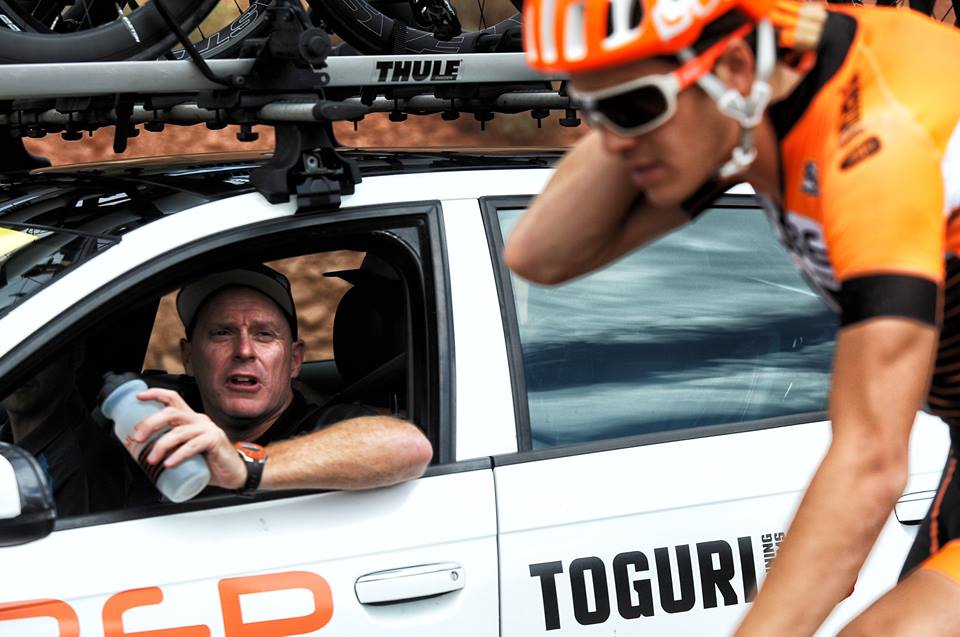From Silber to Landis: How Floyd’s of Leadville came to Canada
Opportunity and contrition combine in formation of new team project


Scott McFarlane would like to make something perfectly clear: Floyd Landis is not the new “boss” at Silber Pro Cycling.
“Floyd is at arm’s length. He’s a sponsor,” McFarlane emphasized during a conversation Thursday, “and that’s actually something that’s important for Floyd, as well.”
McFarlane isn’t trying to distance the new team from its somewhat controversial financial backer. McFarlane would rather frame the development as a sliver of light to come out of a dark era in cycling. But he also wants to make sure everyone’s roles are clear, and that Landis will not be in charge of the new project.
RELATED: Floyd Landis to sponsor new cycling team
So just how did Floyd Landis, disgraced doper and whistleblower against his former teammate Lance Armstrong, end up sponsoring a registered-in-Canada development cycling team? McFarlane, who will be one of the managers of the team, took time amidst the buzz created by the WSJ report to talk to discuss how the new project came about, and what it means for road cycling in Canada.
The Floyd’s of Leadville Professional Cycling Team will not be a continuation of Silber Pro Cycling. Around the time of road nationals, the Canadian development squad revealed that Arthur Silber, the main sponsor for the team, wouldn’t continue supporting the team after this season. Who then, might step in as new sponsor? Things didn’t seem positive. After all, the long-standing U.S. continental level teams announced departures from the sport.

With the loss of the squad’s title sponsor, McFarlane and Gord Fraser began looking at their options. “We were talking to a plethora of people,” McFarlane said. “Through his connection to Gord Fraser from their time together at Mercury (Cycling Team), Floyd was one of them.”
The two Silber directors first approached Landis at the Colorado Classic. “Landis showed genuine interest,” Macfarlane said. “From the onset, he wanted to give the proceeds from the whistleblower settlement back to cycling. With people whose project he trusted, he thought this would be a good way to do so.”
Securing financial backing is one thing, but for McFarlane it was more important that everyone agree on the direction of the project. That meant maintaining an emphasis on Canadian development and, second, on promoting a broader vision of cycling.
The two Canadian team principals, McFarlane and Fraser, are joined by American Josh Saint. The new team will also be registered in Canada. According to the UCI rules, that means the majority of riders must originate from Canada. “That was a way of maintaining a Canadian development program for the country,” McFarlane says. “It’ll be fewer Canadian riders on Silber team, but it allows there to be a focal point for Canadian development.” The team is interested in developing new partnerships to expand the team’s role in Canadian development, but that has to wait until everything’s settled following the initial announcement.
“If we think about developing road racers as cyclists in general, a new approach helps deal with issues of the declining road calendar and helps expand the visibility of the team to a broader audience and therefore different markets,” he said. Gravel races, gran fondos and cyclocross are all on the table. “What’s interesting is—and it’s not going to come out in the first wave of news with it being Floyd—is this is one of the first things Floyd said to me,” McFarlane said of the broader focus of FOLPCT.
“Landis thinks that gravel racing will be a receptive market to Floyd’s of Leadville and CBDs,” McFarlane said. “But as a cyclist, he thinks that these were things he was interested in and he thought, in his sense of what was going lately, it’s not a problem with cycling but a problem with road. Cycling has these growth sectors that people are participating in, so why aren’t we doing this?”
With Thursday’s announcement of the new team, the next phase starts: actually building the team. “All this came together really recently, where detailed discussions became fact,” McFarlane said. “We had to wait until the announcement was made to talk contractually with riders.” But, with Silber out of the picture, Macfarlane is hoping there will be several riders making their way over to the new team.

As for what riders knew about the controversial figure’s involvement, McFarlane says, “Riders knew, because I was constantly in contact with them, that there was something in the works. But no, they weren’t aware who the potential title sponsor would be.”
Asked whether Landis’ involvement in the project gave McFarlane any pause, McFarlane responded with the confidence of someone who had clearly given the topic considerable thought. “People can say what they want about Floyd, but the project I’m involved in is borne out of contrition. And it’s done materially so. Floyd is directing money that he could use personally, and that he could use to grow his own business, back into cycling.” It’s small, but McFarlane sees it as a positive to come out of cycling’s dark era. “Imagine, out of the mountain of problems that emerged from the late 90s to the 2000s, that out of the money from the Armstrong case young cyclists are going to get an opportunity to ride.”
McFarlane knows that this project might not be enough to convince some to soften their view of Landis, but he doesn’t think that should impact those people’s opinion of the new Floyd’s of Leadville team. “I think personally, people can talk about the past, and go back over the past and describe Floyd in various ways, but he’s not running this project. He’s a sponsor. He’s not directing this project, and he’s not an owner.”
Floyd’s name may be on the jersey, but, McFarlane says in closing, “He’s giving over the reigns to others to manage the project.” When the excitement over the team’s celebrity backer dies down, what will be left is Gord Fraser and Scott McFarlane at the helm. Cycling fans can likely expect that the two will continue to build the skills and careers of Canadian riders.
With reporting by Matthew Pioro
